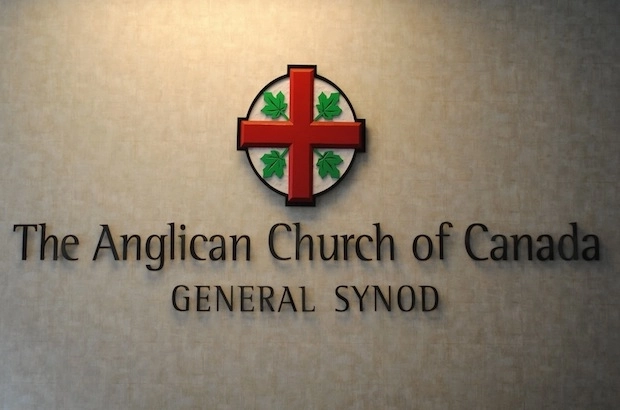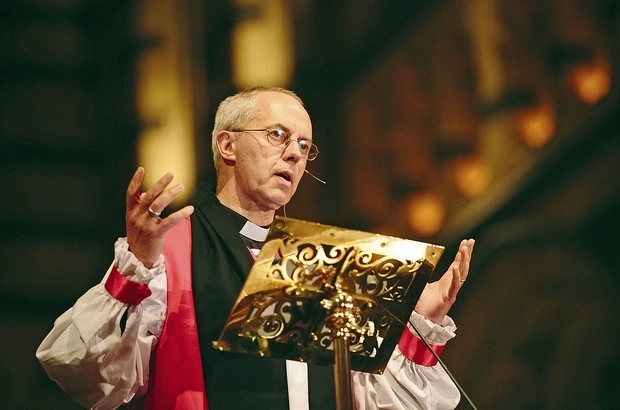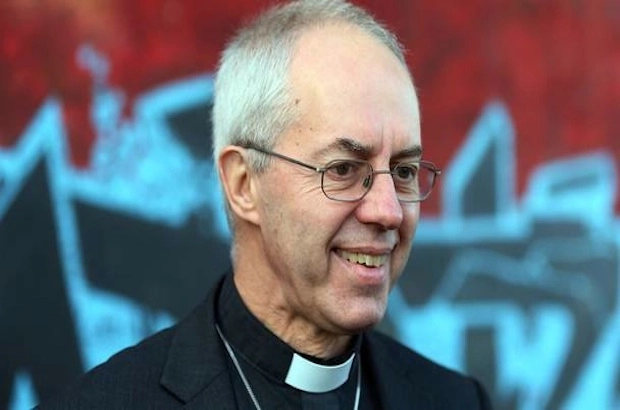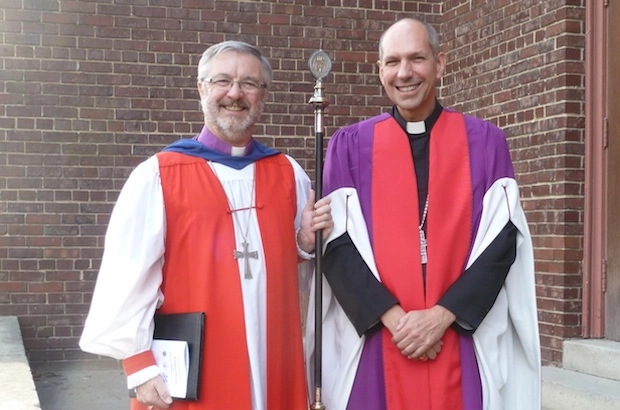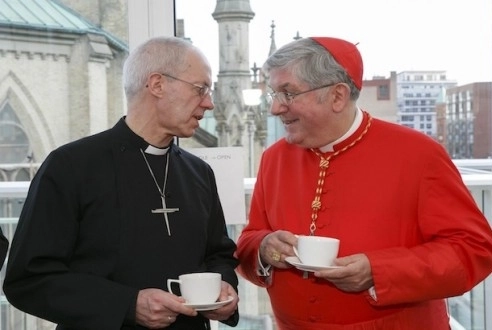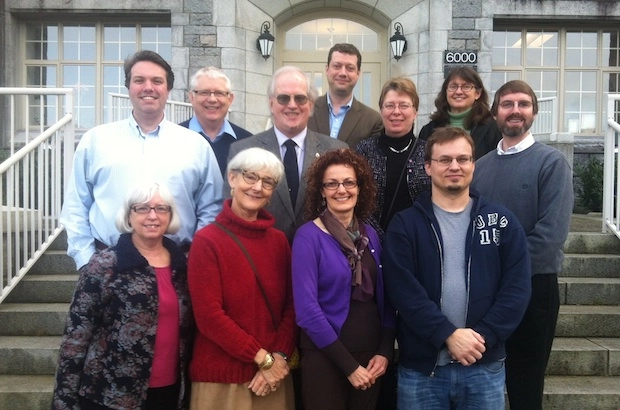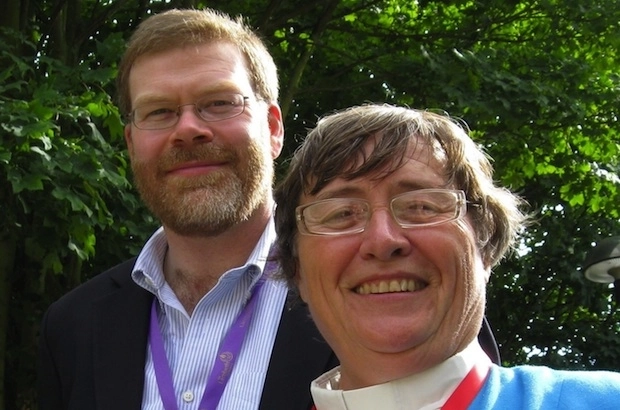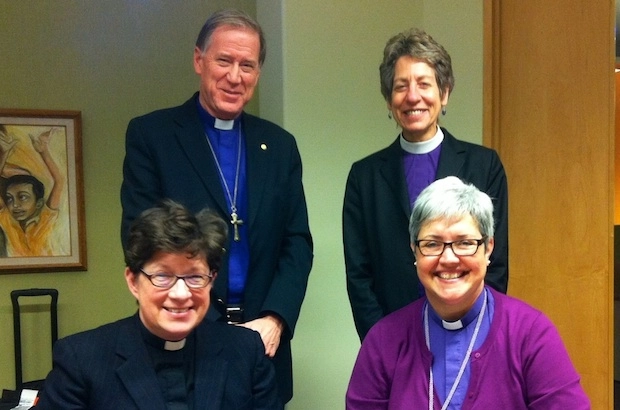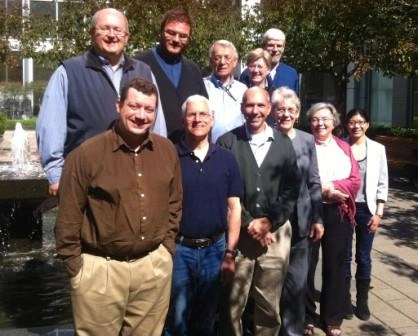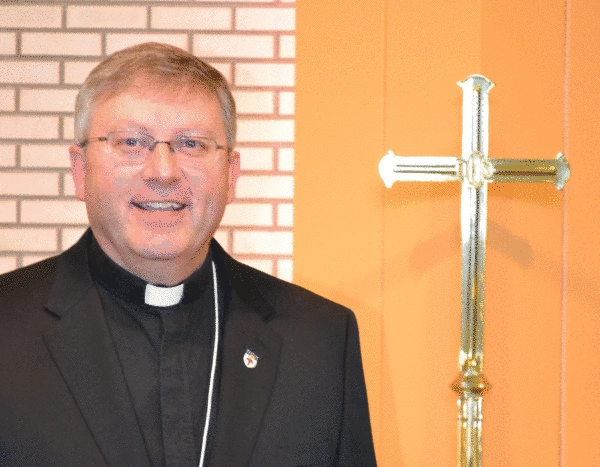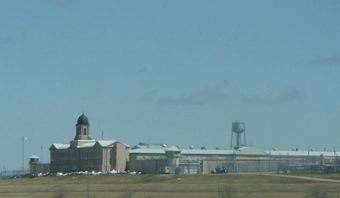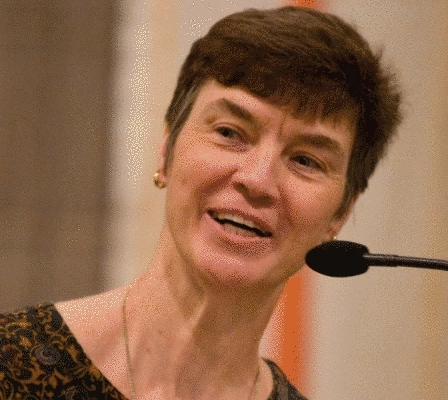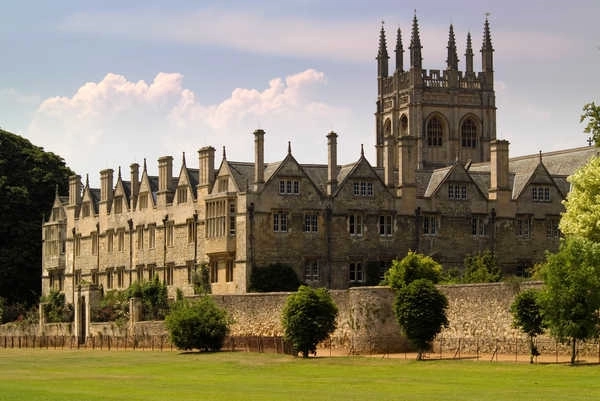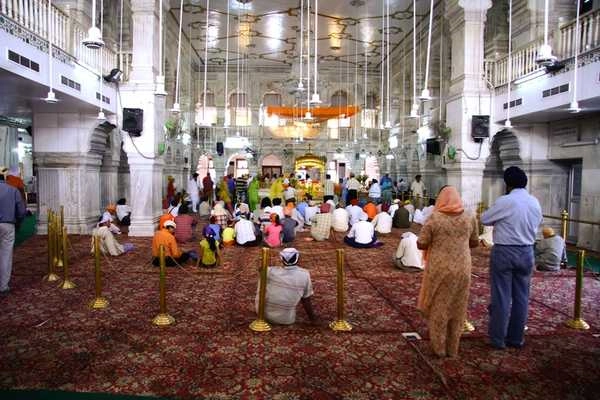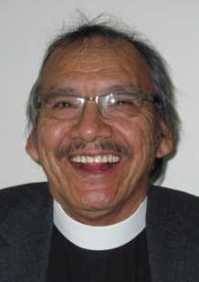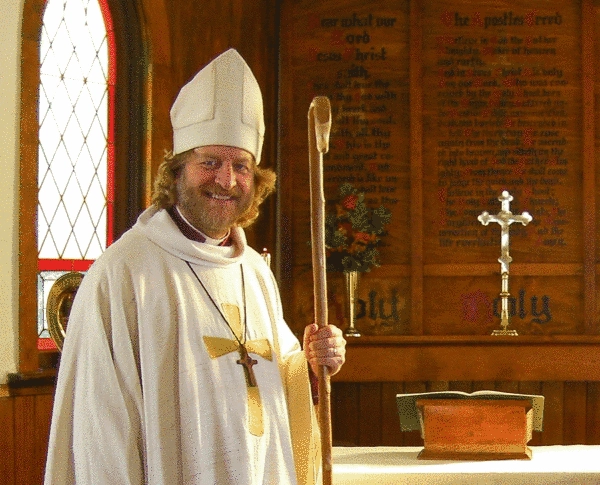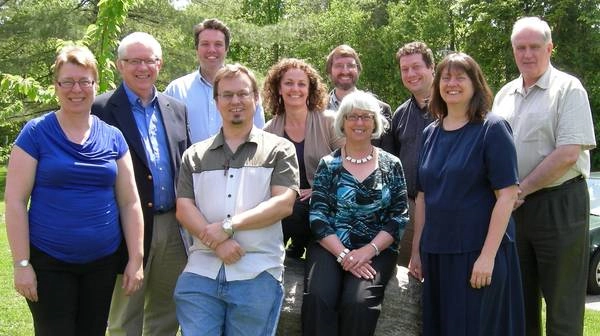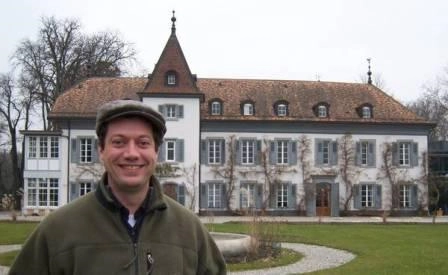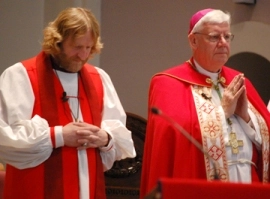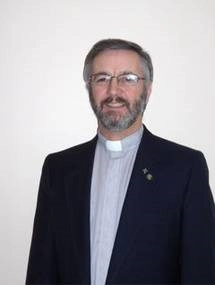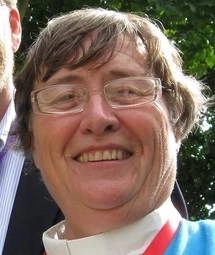- Français
- |
- Booklist
- |
- Week of Prayer
- |
- Links
- Areopagus - a forum for dialogue
- Academic journals
- Acronyms
- Bible tools
- Bibliographies
- Booksellers and publishers
- Churches
- Canadian church headquarters
- Directory of Saskatchewan churches
- Retreat centres
- Saskatchewan church and non-profit agencies
- Ecumenism.net Denominational links
- Anabaptist & Mennonite
- Anglican
- Baptist
- Evangelical
- Independent episcopal
- Lutheran
- Methodist, Wesleyan, and Holiness
- Miscellaneous
- Mormon
- Orthodox (Eastern & Oriental)
- Para-church ministries
- Pentecostal / charismatic
- Presbyterian & Reformed
- Quaker (Society of Friends)
- Roman & Eastern Catholic
- United and uniting
- Documents of Ecumenical Interest
- Ecumenical agencies
- Ecumenical Booklist
- Ecumenical Dialogues
- Glossary
- Human rights
- Inter-religious links
- Justice & peace
- Lectionaries
- Religious news services
- Resource pages
- Search Ecumenism.Net
- |
- Documents
- Ancient & Medieval texts
- Ecumenical Dialogues
- Interreligious
- Anabaptist & Mennonite
- Anglican
- Evangelical
- Lutheran
- Orthodox
- Reformed & Presbyterian
- Roman & Eastern Catholic
- United & Uniting
- Miscellaneous churches
- Canadian Council of Churches (CCC)
- Conference of European Churches (CEC)
- Interchurch Families International Network (IFIN)
- National Council of Churches in Australia (NCCA)
- Lausanne Committee for World Evangelism (LCWE)
- World Council of Churches (WCC)
- Other ecumenical documents
Church traditions
Documents from ecumenical agencies
- |
- Dialogues
- Adventist-Reformed
- African Instituted Churches-Reformed
- Anglican-Lutheran
- Anglican-Orthodox
- Anglican-Reformed
- Anglican-Roman Catholic
- Anglican-United/Uniting
- Baptist-Reformed
- Disciples of Christ-Reformed
- Disciples of Christ-Roman Catholic
- Evangelical-Roman Catholic
- Lutheran-Mennonite
- Lutheran-Mennonite-Roman Catholic
- Lutheran-Reformed
- Lutheran-Roman Catholic
- Mennonite-Reformed
- Mennonite-Roman Catholic
- Methodist-Reformed
- Methodist-Roman Catholic
- Oriental Orthodox-Reformed
- Orthodox-Reformed
- Orthodox-Roman Catholic
- Pentecostal-Reformed
- Prague Consultations
- REC-WARC Consultations
- Roman Catholic-Lutheran-Reformed
- Roman Catholic-Reformed
- Roman Catholic-United Church of Canada
- |
- Quick links
- Canadian Centre for Ecumenism
- Canadian Council of Churches
- Ecumenical Shared Ministries
- Ecumenism in Canada
- Interchurch Families International Network
- International Anglican-Roman Catholic Commission for Unity and Mission
- Kairos: Canadian Ecumenical Justice Initiatives
- North American Academy of Ecumenists
- Prairie Centre for Ecumenism
- Réseau œcuménique justice et paix
- Week of Prayer for Christian Unity
- Women's Interchurch Council of Canada
- World Council of Churches
- |
- Archives
- |
- About us
Archive for category: Anglican Journal
Archive pour catégorie : Anglican Journal
The Inter-Anglican Standing Commission on Unity, Faith and Order (IASCUFO) has urged the Anglican Church of Canada not to amend its marriage canon (church law) to allow the marriage of same-sex couples, saying such a move would “cause great distress for the Communion as a whole, and for its ecumenical relationships.” The IASCUFO’s statement came in response to a request from the Canadian church’s Commission on the Marriage Canon for an opinion about proposed changes to Canon 21 that would allow for same-sex marriages. Canon Kenneth Kearon, secretary general of the Anglican Communion, decided IASCUFO would be the “most appropriate” body within the Communion to deal with such a question. The Anglican Church of Canada has the prerogative “to address issues appropriate to its context,” the IASCUFO said, but it noted the ramifications of “a change of this magnitude” for the Communion and its ecumenical partners. In a letter addressed to Canon Robert Falby, chair of the marriage canon commission, IASCUFO members said they were unanimous “in urging you not to move beyond your present policy of ‘local option.’ ” They noted that the absence of a General Synod decision about the blessing of same-sex unions or same-sex marriages “has given space for the rebuilding of fragile relationships across the Communion.”
… Read more » … lire la suite »

 Permanent link: ecumenism.net/?p=7929
Permanent link: ecumenism.net/?p=7929
Categories: Anglican Journal • In this article: Anglican Church of Canada, Anglican Communion, human sexuality, IASCUFO, marriage, synods

 Lien permanente : ecumenism.net/?p=7929
Lien permanente : ecumenism.net/?p=7929
Catégorie : Anglican Journal • Dans cet article : Anglican Church of Canada, Anglican Communion, human sexuality, IASCUFO, marriage, synods
Archbishop of Canterbury Justin Welby recently articulated his understanding of the status of the Anglican Church in North America (ACNA), formed in 2009 by a coalition of a dozen groups that chose to break communion with the Anglican Church of Canada and, in the United States, with The Episcopal Church. ACNA, said the archbishop in an October interview with the Church of Ireland Gazette, “is a separate church. It is not part of the Anglican Communion.” Instead, he described ACNA as “an ecumenical partner.” The Anglican Church of Canada has a number of ecumenical partners. One, the Evangelical Lutheran Church in Canada, has become a full communion partner with which we enjoy a full and mutual recognition of ministry and sacraments. With others, like the Roman Catholic Church and the United Church of Canada, we’re still on that journey—an admittedly longer one. To be an ecumenical partner means to repent of our divisions and to understand them as a scandalous contradiction of the will of Christ. It means to fervently desire reconciliation with the churches from which we are separated, and to manifest this desire in prayer, dialogue and action. To be an ecumenical partner also means recognizing that the other with whom you are seeking to reconcile demonstrates signs of the Holy Spirit at work, even if you are in disagreement about some significant issues.
… Read more » … lire la suite »

 Permanent link: ecumenism.net/?p=8449
Permanent link: ecumenism.net/?p=8449
Categories: Anglican Journal • In this article: Anglican Church in North America, Anglican Church of Canada, Anglican Communion, ecumenism, Justin Welby

 Lien permanente : ecumenism.net/?p=8449
Lien permanente : ecumenism.net/?p=8449
Catégorie : Anglican Journal • Dans cet article : Anglican Church in North America, Anglican Church of Canada, Anglican Communion, ecumenism, Justin Welby
In an interview with the Church of Ireland Gazette on Oct. 3, Archbishop of Canterbury Justin Welby addressed speculation that the next Lambeth Conference, which is usually held every 10 years and was expected to be in 2018, might be postponed. When asked by Gazette editor Canon Ian Ellis if he had made up his mind or was rethinking Lambeth 2018, Welby said, “I am not rethinking. I’m following through with what I said to the primates when I was installed as archbishop, which was that I would, by the end of 2014, seek to visit them all in their home country, in their own home, discuss with them the future of what it looked like and then we would collectively make up our minds where we went.”
… Read more » … lire la suite »

 Permanent link: ecumenism.net/?p=7845
Permanent link: ecumenism.net/?p=7845
Categories: Anglican Journal • In this article: Anglican Communion, Justin Welby, Lambeth Conference

 Lien permanente : ecumenism.net/?p=7845
Lien permanente : ecumenism.net/?p=7845
Catégorie : Anglican Journal • Dans cet article : Anglican Communion, Justin Welby, Lambeth Conference
We are united as Christian leaders in our concern for the well-being of our neighbours and of God’s good creation that provides life and livelihood for all God’s creatures. Daily we see and hear the evidence of a rapidly changing climate. Glaciers are disappearing, the polar ice cap is melting, and sea levels are rising. Incidents of pollution- created dead zones in seas and the ocean and toxic algae growth in water supplies are occurring with greater frequency. Most disturbingly, the concentration of carbon dioxide in the atmosphere is rising at an unprecedented rate. At the same time we also witness in too many instances how the earth’s natural beauty, a sign of God’s wonderful creativity, has been defiled by pollutants and waste.
Many have reacted to these changes with grief and anger. In their outrage some have understandably focused on the neglect and carelessness, both in private industry and in government regulation, that have contributed to these changes. However, an honest accounting requires a recognition that we all participate both as consumers and investors in economies that make intensive and insistent demands for energy. In addition, as citizens we have chosen to support or acquiesce in policies that shift the burdens of climate change to communities that are most vulnerable to its effects. People who are already challenged by poverty and by dislocation resulting from civil war or famine have limited resources for adapting to climate change’s effects.
… Read more » … lire la suite »

 Permanent link: ecumenism.net/?p=7818
Permanent link: ecumenism.net/?p=7818
Categories: Anglican Journal, Communiqué • In this article: Anglican, climate change, Lutheran, statements

 Lien permanente : ecumenism.net/?p=7818
Lien permanente : ecumenism.net/?p=7818
Catégorie : Anglican Journal, Communiqué • Dans cet article : Anglican, climate change, Lutheran, statements
The Anglican-run University College of Emmanuel and St. Chad has awarded an honorary fellowship to the seventh bishop of the Roman Catholic Diocese of Saskatoon, Donald Bolen. Bolen, 53, a well-respected ecumenist in Canada and internationally, received the honour May 9 in recognition of his work in building Anglican-Roman Catholic relations, according to a press statement. Anglican Diocese of Saskatoon Bishop David Irving, who is also the university’s chancellor, presented the award during the 13th Joint Convocation of the Saskatoon Theological Union, where Bolen was the convocation speaker. In a telephone interview, Bolen said it was “a great privilege and a great delight,” to have been bestowed the award. “It’s been a great joy to work with Anglicans to foster reconciliation,” said Bolen. There is a “deep bond of friendship and deep relations between Anglicans and Roman Catholics. We hold so much in common that it’s a lovely field of ecumenism to work in.”
… Read more » … lire la suite »

 Permanent link: ecumenism.net/?p=7673
Permanent link: ecumenism.net/?p=7673
Categories: Anglican Journal • In this article: Anglican, Catholic, Donald Bolen, Saskatoon

 Lien permanente : ecumenism.net/?p=7673
Lien permanente : ecumenism.net/?p=7673
Catégorie : Anglican Journal • Dans cet article : Anglican, Catholic, Donald Bolen, Saskatoon
Archbishop of Canterbury Justin Welby has underscored the value of continuing ecumenical dialogue at a “passionate theological level” while at the same time having “a closer relationship of action” that addresses the needs of the world in such areas as poverty and social justice. Ecumenism must be “something that is our burning desire,” Welby told a gathering of ecumenical guests at a reception at Toronto’s St. James’ Cathedral Centre, during his “personal, pastoral visit” to the Anglican Church of Canada April 8 to 9. “In the last seven verses of John: 17, Jesus prays with extraordinary passion and extraordinary directness about the absolute necessity of the visible unity of the church… Love one another…” In a divided and diverse world, Welby said the church could demonstrate “how humanity can overcome its cultural divisions and truly be… a holy nation of God’s people.” In different parts of the world, there has been “a new movement of the spirit,” said Welby. He cited a decision by Chemin Neuf, a Jesuit-founded French Catholic community with an ecumenical vocation, to accept his invitation to take up residence in Lambeth Palace. Last January, four members set up “a fraternity” in Lambeth Palace. “We hope that is something that will grow and develop,” said Welby, adding that he and his wife, Caroline, got to know the community over the last seven years. (The archbishop’s spiritual director is a Swiss Roman Catholic priest, Fr. Nicholas Buttet.) The Guardian newspaper has noted that the move breaks five centuries of Anglican tradition and ushers “a further rapprochement between the churches of England and Rome.”
… Read more » … lire la suite »

 Permanent link: ecumenism.net/?p=7508
Permanent link: ecumenism.net/?p=7508
Categories: Anglican Journal • In this article: Anglican Church of Canada, dialogue, ecumenism, justice, Justin Welby, social policy

 Lien permanente : ecumenism.net/?p=7508
Lien permanente : ecumenism.net/?p=7508
Catégorie : Anglican Journal • Dans cet article : Anglican Church of Canada, dialogue, ecumenism, justice, Justin Welby, social policy
“Both friendly and intense”—that’s how the Rev. William Harrison describes the latest phase of the dialogue between representatives of the Anglican Church of Canada and the United Church of Canada after the last of three annual meetings wrapped up at the Vancouver School of Theology on Jan. 16.
Harrison, the group’s Anglican co-chair, said the participants from both churches have prepared an interim report, which has to be submitted the Anglican Church of Canada’s Council of General Synod (CoGS) for its next meeting in May before it can be discussed in detail. In the meanwhile, he answered a few questions from the Journal by email about the latest meetings and their progress.
In keeping with a resolution from the 2010 General Synod of the Anglican Church of Canada, and with the agreement of the United Church’s Theology and Inter-Church Inter-Faith Committee, these most recent talks have focused on “the doctrinal identities of the two churches and the implications of this for the lives of the churches—including understandings of sacraments and orders of ministry.”
“Both sides have been willing to engage and ask tough questions,” Harrison wrote. “Where the previous phase focused on what we have in common, this phase has been more inclined to recognize differences. The result is that we have challenged one another and ourselves.” The previous dialogue took place over six years and ended in 2009. Those conversations were described in Drawing from the Same Well: The St. Brigid Report.
In spite of those differences, Harrison wrote, “We found that on core theological commitments (as expressed in the Nicene and Apostles’ Creeds, for example) we are really in much the same place, facing common challenges. Our differences on these matters tend to be more in the realm of how we do theology than in the things that we affirm.”
… Read more » … lire la suite »

 Permanent link: ecumenism.net/?p=7352
Permanent link: ecumenism.net/?p=7352
Categories: Anglican Journal • In this article: Anglican Church of Canada, Christian unity, dialogue, United Church of Canada

 Lien permanente : ecumenism.net/?p=7352
Lien permanente : ecumenism.net/?p=7352
Catégorie : Anglican Journal • Dans cet article : Anglican Church of Canada, Christian unity, dialogue, United Church of Canada
Aptly released for the Week of Prayer for Christian Unity, the Anglican Communion Office has produced a study guide to the World Council of Churches (WCC) document The Church: Towards a Common Vision, the result of 20 years of study and dialogue among the council’s member churches, who represent most of the world’s churches.
The WCC published Towards a Common Vision in March 2013 and asked its members to study it and comment on it. According to the WCC’s introduction, the document asks and offers answers to the questions “What can we say together about the Church of the Triune God in order to grow in communion, to struggle together for justice and peace in the world, and to overcome together our past and present divisions?” It begins by addressing “the Church’s mission, unity, and its being in the Trinitarian life of God” and then looks at ecumenical “growth in communion – in apostolic faith, sacramental life, and ministry – as churches called to live in and for the world.”
… Read more » … lire la suite »

 Permanent link: ecumenism.net/?p=7195
Permanent link: ecumenism.net/?p=7195
Categories: Anglican Journal • In this article: church, dialogue, ecclesiology, ecumenism, WCC, WCC Commission on Faith and Order

 Lien permanente : ecumenism.net/?p=7195
Lien permanente : ecumenism.net/?p=7195
Catégorie : Anglican Journal • Dans cet article : church, dialogue, ecclesiology, ecumenism, WCC, WCC Commission on Faith and Order
The heads of the Anglican Church of Canada, the Evangelical Lutheran Church in Canada (ELCIC), the Episcopal Church and the Evangelical Lutheran Church in America (ELCA) have agreed to co-ordinate their responses to “events that transcend” their borders, such as natural disasters.
They could, for instance, issue a joint pastoral letter in response to a natural calamity and invite their members to contribute to relief and recovery efforts through one of their four relief agencies, said Archdeacon Bruce Myers, General Synod’s co-ordinator for ecumenical and interfaith relations. Myers served as staff support at the meeting.
Leaders of the four churches reached this agreement when they met for a day and a half of informal talks last December in Winnipeg. Since 2010, the heads of these four churches have met for informal talks, “becoming colloquially known as the ‘Four-Way,’ ” said Myers.
The Anglican Church of Canada’s primate, Archbishop Fred Hiltz, ELCIC Bishop Susan Johnson and Episcopal Church Presiding Bishop Katharine Jefferts Schori were joined in the meeting by the new presiding bishop of the ELCA, Elizabeth Eaton.
… Read more » … lire la suite »

 Permanent link: ecumenism.net/?p=7116
Permanent link: ecumenism.net/?p=7116
Categories: Anglican Journal • In this article: Anglican Church of Canada, dialogue, ecumenism, Episcopal Church, Evangelical Lutheran Church in America, Evangelical Lutheran Church in Canada, full communion

 Lien permanente : ecumenism.net/?p=7116
Lien permanente : ecumenism.net/?p=7116
Catégorie : Anglican Journal • Dans cet article : Anglican Church of Canada, dialogue, ecumenism, Episcopal Church, Evangelical Lutheran Church in America, Evangelical Lutheran Church in Canada, full communion
Canadian Roman Catholics have expressed the hope that the Anglican Church of Canada would seek input from its ecumenical partners as it continues discussion concerning a resolution to amend the church’s marriage canon to allow same-sex marriage.
The marriage canon resolution was discussed at a joint meeting of the Anglican-Roman Catholic Bishops’ Dialogue (ARCB) and the Anglican-Roman Catholic Dialogue of Canada (ARC Canada) held last December. Anglican Bishop Linda Nicholls, ARC Canada co-chair, reported on the Anglican-Lutheran Joint Assembly held last summer, which included an explanation of the said resolution passed by General Synod.
Nicholls assured her Catholic counterparts that since the resolution states that action taken on the marriage canon must demonstrate “broad consultation,” this could be interpreted to include consultation with the church’s ecumenical partners, including the Roman Catholic Church, said Archdeacon Bruce Myers, General Synod co-ordinator for ecumenical and interfaith relations. who assisted the ARC meeting as staff. [On Jan. 6, the primate of the Anglican Church of Canada appointed Nicholls as a member of the commission on the marriage canon, which will conduct a broad consultation on the proposed change to the marriage canon.)
Catholic members stated that consultations were necessary since “any decision our church takes regarding our understanding of marriage will have implications for our relationships with other churches,” said Myers.
… Read more » … lire la suite »

 Permanent link: ecumenism.net/?p=7113
Permanent link: ecumenism.net/?p=7113
Categories: Anglican Journal • In this article: Anglican, Catholic, dialogue, ecumenism, human sexuality

 Lien permanente : ecumenism.net/?p=7113
Lien permanente : ecumenism.net/?p=7113
Catégorie : Anglican Journal • Dans cet article : Anglican, Catholic, dialogue, ecumenism, human sexuality
The Ven. Robert Hardwick is the new bishop of the Anglican diocese of Qu’Appelle, in Regina, Sask.
Currently serving as the diocese’s assistant to the bishop and executive archdeacon, Hardwick was elected on the first ballot of the electoral synod, held Dec. 8. He succeeds Bishop Greg Kerr-Wilson, who is now the bishop of the diocese of Calgary.
… Read more » … lire la suite »

 Permanent link: ecumenism.net/?p=2280
Permanent link: ecumenism.net/?p=2280
Categories: Anglican Journal • In this article: Anglican, bishops, Saskatchewan

 Lien permanente : ecumenism.net/?p=2280
Lien permanente : ecumenism.net/?p=2280
Catégorie : Anglican Journal • Dans cet article : Anglican, bishops, Saskatchewan
Public Safety Minister Vic Toews has announced the cancellation of the contracts of all part-time non-Christian chaplains ministering in federal prisons across Canada. The cuts take effect as of the end of March 2013. After that date, penitentiary inmates of minority faiths, from Buddhists to Wiccans, will have to rely on full-time Christian chaplains for interfaith services, religious counsel and spiritual guidance.
… Read more » … lire la suite »

 Permanent link: ecumenism.net/?p=2242
Permanent link: ecumenism.net/?p=2242
Categories: Anglican Journal • In this article: Canada, criminal justice, ministry

 Lien permanente : ecumenism.net/?p=2242
Lien permanente : ecumenism.net/?p=2242
Catégorie : Anglican Journal • Dans cet article : Canada, criminal justice, ministry
One of Canada’s most eminent theologians and one of the greatest Catholic experts in ecumenism has died. Margaret O’Gara, Professor of Theology at the University of St. Michael’s College, entered the realm of eternal life on Thursday, August 16, at age 65. She had suffered from cancer for two years.
In 37 years of work as a theologian O’Gara was able to foster dialogue among Christians for the sake of overcoming divisions between the churches. Besides her teaching, research, writing, and extensive public lecturing, she was a member of official ecumenical dialogues in Canada, the United States, and at the international level. She served terms as president of both the North American Academy of Ecumenists and the Catholic Theological Society of America.
… Read more » … lire la suite »

 Permanent link: ecumenism.net/?p=2235
Permanent link: ecumenism.net/?p=2235
Categories: Anglican Journal, Memorials • In this article: Catholic, ecumenism

 Lien permanente : ecumenism.net/?p=2235
Lien permanente : ecumenism.net/?p=2235
Catégorie : Anglican Journal, Memorials • Dans cet article : Catholic, ecumenism
The sixth meeting of the Anglican-Jewish Commission of the Chief Rabbinate of Israel and the Archbishop of Canterbury’s office took place at Mansfield College, Oxford, on July 31 and Aug. 1, 2012.
The commission’s mandate provides for the archbishop and two chief rabbis (one each from the Ahkenazi and Sephardi communities) to meet each year alternately in England and Jerusalem. It also provides for an annual meeting to study agreed-on themes and the arrangement of other meetings that include the Anglican bishop in Jerusalem, The Rt. Rev. Suheil Dawani.
The meeting’s theme was religion and democracy in both faith traditions. A paper by Dr. Jane Clements on Anglicanism and the secular state explored the dynamic between the kingdom of God and the earthly realm in scriptural interpretation.
… Read more » … lire la suite »

 Permanent link: ecumenism.net/?p=2236
Permanent link: ecumenism.net/?p=2236
Categories: Anglican Journal • In this article: Anglican, Judaism

 Lien permanente : ecumenism.net/?p=2236
Lien permanente : ecumenism.net/?p=2236
Catégorie : Anglican Journal • Dans cet article : Anglican, Judaism
Ecumenical and inter-faith groups across the United States are planning vigils and rallies beginning August 12 to express their solidarity with Sikhs in the wake of a gunman’s attack on August 5 at a Sikh temple in Wisconsin.
Six people were killed and three others injured when Wade Michael Page, 40, a U.S. Army veteran described as a “frustrated neo-Nazi,” stormed into the temple in Oak Creek, a suburb of Milwaukee.
National Council of Churches of Christ (NCCC) President Kathryn Lohre has urged Christians to participate in the events planned by the Groundswell Movement, a multi-faith social justice initiative based in New York City.
… Read more » … lire la suite »

 Permanent link: ecumenism.net/?p=2237
Permanent link: ecumenism.net/?p=2237
Categories: Anglican Journal • In this article: interfaith, Sikh

 Lien permanente : ecumenism.net/?p=2237
Lien permanente : ecumenism.net/?p=2237
Catégorie : Anglican Journal • Dans cet article : interfaith, Sikh
On July 28, the Anglican diocese of Saskatchewan will convene a general assembly to elect a diocesan indigenous bishop as well as members of a new indigenous council.
The election will take place following changes to the diocese’s constitution and canons that provide indigenous members with greater self-determination.
The three candidates nominated for the position are: The Ven. Adam Halkett, archdeacon of the diocese; the Rev. Beryl Whitecap, incumbent at Little Red River Reserve; and The Rev. Canon Park Buck, priest-in-charge at the Church of the Good Shepherd, in Cumberland House.
… Read more » … lire la suite »

 Permanent link: ecumenism.net/?p=2220
Permanent link: ecumenism.net/?p=2220
Categories: Anglican Journal • In this article: Anglican, bishops, Indigenous peoples, Saskatchewan

 Lien permanente : ecumenism.net/?p=2220
Lien permanente : ecumenism.net/?p=2220
Catégorie : Anglican Journal • Dans cet article : Anglican, bishops, Indigenous peoples, Saskatchewan
Bishop Gregory Kerr-Wilson of the Anglican diocese of Qu’Appelle has been elected the new bishop for the diocese of Calgary. He replaces Bishop Derek Hoskin, who has retired.
The election took place at the diocesan synod held Jun. 16 at St. Peter’s Anglican Church in Calgary.
In all, five candidates vied for the position. After the first electronic ballot, however, it came down to a very close race between Bishop Kerr-Wilson and the Ven. Ansley Tucker, the archdeacon of Bow Valley. To avoid a deadlock after six more ballots, the percentage of votes from both the clergy and lay houses were tallied.
Bishop Kerr-Wilson describes himself as an “evangelical, charismatic Catholic with liberal and conservative tendencies.” He is focused on moving forward constructively and building local leadership ” … rather than simply thinking about survival,” he says. “The church’s capital is its people and their faith.”
… Read more » … lire la suite »

 Permanent link: ecumenism.net/?p=2194
Permanent link: ecumenism.net/?p=2194
Categories: Anglican Journal • In this article: Anglican, bishops, Calgary

 Lien permanente : ecumenism.net/?p=2194
Lien permanente : ecumenism.net/?p=2194
Catégorie : Anglican Journal • Dans cet article : Anglican, bishops, Calgary
The Anglican Church of Canada has entered a new round of dialogue with the United Church of Canada. The aim is to explore ways in which the two churches can work together for more effective ministry and mission.
“Much of the impetus for these conversations is coming from the grassroots of our two churches,” says Archdeacon Bruce Myers, the Anglican church’s coordinator for ecumenical relations. “Many communities across Canada are served by ecumenical shared ministries in which Anglicans and United church people and clergy work and worship side by side. They’re asking our churches’ leadership to find ways to facilitate such cooperation in mission and ministry.”
To that end, 12 new representatives from the two denominations met in Toronto May 14 to May 17 at St. John’s Convent, the headquarters of the Sisters of St. John the Divine. In addition to theological conversation, the group shared common prayer, meals and fellowship.
… Read more » … lire la suite »

 Permanent link: ecumenism.net/?p=2188
Permanent link: ecumenism.net/?p=2188
Categories: Anglican Journal • In this article: Anglican, Christian unity, dialogue, ecumenism, UCC, United Church of Canada

 Lien permanente : ecumenism.net/?p=2188
Lien permanente : ecumenism.net/?p=2188
Catégorie : Anglican Journal • Dans cet article : Anglican, Christian unity, dialogue, ecumenism, UCC, United Church of Canada
This Pentecost Sunday, May 27, Anglican and Lutheran leaders in the Holy Land will issue a joint pastoral letter informing their churches that they are fully committed to establishing closer relations, and in time, full communion. The letter was a result of a meeting held in Jerusalem May 15 to 21 in which national leaders of the Anglican Church of Canada and the Evangelical Lutheran Church in Canada (ELCIC) were invited to share their journey into full communion.
Read the complete story by Marites N. Sison from the Anglican Journal
… Read more » … lire la suite »

 Permanent link: ecumenism.net/?p=2189
Permanent link: ecumenism.net/?p=2189
Categories: Anglican Journal • In this article: Anglican, Christian unity, ecumenism, full communion, Israel, Lutheran, Palestine

 Lien permanente : ecumenism.net/?p=2189
Lien permanente : ecumenism.net/?p=2189
Catégorie : Anglican Journal • Dans cet article : Anglican, Christian unity, ecumenism, full communion, Israel, Lutheran, Palestine
As of Jan. 2, the Anglican Church of Canada will have a dedicated new advocate for ecumenism.
Archdeacon Bruce Myers, missioner of communications in the diocese of Quebec, will assume a one-year, part-time position as coordinator for ecumenical relations with the Faith, Worship and Ministry department of General Synod.
“I’ve always had a passion for ecumenism even if I didn’t always call it that,” says Myers, who is manager of the Quebec diocese’s website and editor of its newspaper, Gazette. “Early on, I recognized that it was not right that the body of Christ was divided into so many pieces.”
Myers, who holds a master’s degree in ecumenical theology from the The Ecumenical Institute of Bossey in Switzerland, now brings that passion to healing the divisions in Christendom, so much of which was united as one church for 15 centuries. “I think ordinary Christians of every denomination are questioning whether the differences are all that important when we share so much in common,” he says. “The overarching ecumenical task is how to mend those broken fences and relations.”
… Read more » … lire la suite »

 Permanent link: ecumenism.net/?p=1829
Permanent link: ecumenism.net/?p=1829
Categories: Anglican Journal • In this article: Alyson Barnett-Cowan, Anglican, Canada, Christian unity, ecumenism

 Lien permanente : ecumenism.net/?p=1829
Lien permanente : ecumenism.net/?p=1829
Catégorie : Anglican Journal • Dans cet article : Alyson Barnett-Cowan, Anglican, Canada, Christian unity, ecumenism
On Pentecost Sunday, Gregory Kerr-Wilson, Anglican bishop of the Diocese of Qu’Appelle, and Daniel Bohan, Roman Catholic archbishop of the Archdiocese of Regina, jointly celebrated a service in Regina.
… Read more » … lire la suite »

 Permanent link: ecumenism.net/?p=1804
Permanent link: ecumenism.net/?p=1804
Categories: Anglican Journal • In this article: Anglican, Catholic

 Lien permanente : ecumenism.net/?p=1804
Lien permanente : ecumenism.net/?p=1804
Catégorie : Anglican Journal • Dans cet article : Anglican, Catholic
Reconciliation — between the Roman Catholic and Anglican churches and between Inuit and Dene students who attended residential schools in the North — will be the major focus of the 2nd Truth and Reconciliation Commission (TRC) event June 28 to July 1.
… Read more » … lire la suite »

 Permanent link: ecumenism.net/?p=1798
Permanent link: ecumenism.net/?p=1798
Categories: Anglican Journal • In this article: Anglican, Catholic

 Lien permanente : ecumenism.net/?p=1798
Lien permanente : ecumenism.net/?p=1798
Catégorie : Anglican Journal • Dans cet article : Anglican, Catholic
Last month, the national Canadian ARC Bishops’ Dialogue celebrated 40 years of bringing Anglican and Roman Catholics closer together. “The Canadian Anglican-Roman Catholic dialogue is one of the longest running in the world,” says Bishop Michael Ingham of the Anglican diocese of New Westminster in Vancouver.
Unity headed the agenda as five Roman Catholic and four Anglican bishops (one was absent due to illness) met over three days in Pickering, Ont., to discuss–among other things–Growing Together in Unity and Mission, a document produced by the International Anglican-Roman Catholic Commission for Unity and Mission.
Growing Together encourages practical co-operation at local levels between Anglican and Roman Catholic churches and visible signs of religious unity. “For example, it recommends that the two churches consider offering baptismal preparation together, using the same baptismal certificates or making public professions of faith together at Pentecost or on other significant occasions,” says Bishop Ingham.
It also encourages other joint ventures such as non-Eucharistic worship, pilgrimages and social justice initiatives. Religious collaborations are not common now, but Bishop Ingham is optimistic that they may become so. “We discussed how to develop this co-operation in Canada. The bishops will be taking the recommendations back to the House of Bishops. If the bishops are supportive, then they have to go out to the dioceses and encourage the clergy there.”
… Read more » … lire la suite »

 Permanent link: ecumenism.net/?p=1790
Permanent link: ecumenism.net/?p=1790
Categories: Anglican Journal • In this article: Anglican, Catholic, Christian unity, dialogue

 Lien permanente : ecumenism.net/?p=1790
Lien permanente : ecumenism.net/?p=1790
Catégorie : Anglican Journal • Dans cet article : Anglican, Catholic, Christian unity, dialogue
A fully integrated meeting with the Evangelical Lutheran Church in Canada (ELCIC) is planned to take place at the Anglican Church of Canada’s General Synod 2013 in Ottawa.
… Read more » … lire la suite »

 Permanent link: ecumenism.net/?p=1597
Permanent link: ecumenism.net/?p=1597
Categories: Anglican Journal, Dialogue • In this article: Anglican Church of Canada, ecumenism, Evangelical Lutheran Church in Canada, full communion, Lutheran

 Lien permanente : ecumenism.net/?p=1597
Lien permanente : ecumenism.net/?p=1597
Catégorie : Anglican Journal, Dialogue • Dans cet article : Anglican Church of Canada, ecumenism, Evangelical Lutheran Church in Canada, full communion, Lutheran
The Anglican Church of Canada’s governing body has approved a landmark resolution today repudiating and renouncing the Doctrine of Discovery. It also pledged a review of the church’s policies and programs to expose the doctrine’s historical impact and to end its continuing effects on indigenous peoples.
… Read more » … lire la suite »

 Permanent link: ecumenism.net/?p=1603
Permanent link: ecumenism.net/?p=1603
Categories: Anglican Journal • In this article: Anglican Church of Canada, Indigenous peoples

 Lien permanente : ecumenism.net/?p=1603
Lien permanente : ecumenism.net/?p=1603
Catégorie : Anglican Journal • Dans cet article : Anglican Church of Canada, Indigenous peoples
Two ecumenical partners greeted the Anglican Church of Canada’s General Synod members on Wednesday. The Archbishop of Halifax Anthony Mancini represented the Roman Catholic Bishops of Canada, and Moderator Mardi Tindal represented the United Church of Canada.
… Read more » … lire la suite »

 Permanent link: ecumenism.net/?p=1600
Permanent link: ecumenism.net/?p=1600
Categories: Anglican Journal • In this article: Anglican Church of Canada, Catholic, CCCB, ecumenism, UCC, United Church of Canada

 Lien permanente : ecumenism.net/?p=1600
Lien permanente : ecumenism.net/?p=1600
Catégorie : Anglican Journal • Dans cet article : Anglican Church of Canada, Catholic, CCCB, ecumenism, UCC, United Church of Canada
Court rules church properties remain with diocese of New Westminster
The Supreme Court of British Columbia ruled yesterday that the Anglican Church of Canada’s diocese of New Westminster retains possession of four church properties worth an estimated $20 million. Members of congregations in these churches, who voted to leave the Anglican Church of Canada and join the more conservative Anglican Network in Canada (ANiC), claimed these properties were held in trust for them.
… continued
… Read more » … lire la suite »

 Permanent link: ecumenism.net/?p=617
Permanent link: ecumenism.net/?p=617
Categories: Anglican Journal • In this article: Anglican Church in North America, Anglican Church of Canada

 Lien permanente : ecumenism.net/?p=617
Lien permanente : ecumenism.net/?p=617
Catégorie : Anglican Journal • Dans cet article : Anglican Church in North America, Anglican Church of Canada
New Anglican bishop elected for Saskatoon: David Irving
David Irving, currently the executive archdeacon of the diocese of Kootenay, has been elected the new bishop of the diocese of Saskatoon. Bishop-elect Irving will replace Bishop Rodney Andrews , who is retiring on Feb. 28.
… continued
… Read more » … lire la suite »

 Permanent link: ecumenism.net/?p=616
Permanent link: ecumenism.net/?p=616
Categories: Anglican Journal • In this article: Anglican Church of Canada, bishops, Saskatoon

 Lien permanente : ecumenism.net/?p=616
Lien permanente : ecumenism.net/?p=616
Catégorie : Anglican Journal • Dans cet article : Anglican Church of Canada, bishops, Saskatoon
Canon Alyson Barnett-Cowan has been appointed director for Unity, Faith and Order for the Anglican Communion. Ms. Barnett-Cowan is currently director of faith, worship and ministry of the General Synod of the Anglican Church of Canada, a post she has held since 1995. She was recently appointed to the Inter-Anglican Standing Commission for Unity, Faith and Order (IASCUFO).
… Read more » … lire la suite »

 Permanent link: ecumenism.net/?p=596
Permanent link: ecumenism.net/?p=596
Categories: Anglican Journal • In this article: Alyson Barnett-Cowan, Anglican, Christian unity, IASCUFO, WCC Commission on Faith and Order

 Lien permanente : ecumenism.net/?p=596
Lien permanente : ecumenism.net/?p=596
Catégorie : Anglican Journal • Dans cet article : Alyson Barnett-Cowan, Anglican, Christian unity, IASCUFO, WCC Commission on Faith and Order
Michael Hawkins was elected as the next bishop of the diocese of Saskatchewan on Dec. 6 at a synod held at St. Alban’s Cathedral in Prince Albert. Mr. Hawkins, who has served as the rector St. Alban’s Cathedral and as dean of Saskatchewan since 2001, was voted in by a decisive margin in both clergy and lay houses on the first ballot.
… Read more » … lire la suite »

 Permanent link: ecumenism.net/?p=532
Permanent link: ecumenism.net/?p=532
Categories: Anglican Journal • In this article: Anglican

 Lien permanente : ecumenism.net/?p=532
Lien permanente : ecumenism.net/?p=532
Catégorie : Anglican Journal • Dans cet article : Anglican
Historic apology to residential schools students seen as a beginning
[Art Babych • Anglican Journal] Archbishop Fred Hiltz, the Primate of the Anglican Church of Canada, today said he was moved by Prime Minister Stephen Harper’s apology to victims of residential schools and is optimistic that the historic apology – made on behalf of the Canadian government – will be followed by action.
“I was equally grateful for the apologies – and that’s what they were – offered on behalf of the other political parties,” he said in an interview with the Anglican Journal on Parliament Hill after Mr. Harper delivered the apology in the House of Commons June 11, followed by apologies from the other party leaders. “I was very encouraged by their determination to make sure that this apology is seen as a beginning, and that it will be accompanied by actions that will significantly improve the quality of life for First Nations people in this land,” the primate said.
The government’s apology was directed at the generations of victims of what Mr. Harper called “a sad chapter in our history” and asked for forgiveness for the students’ suffering and for the damaging impact the schools had on aboriginal culture, heritage and language.
Aboriginal leaders and abuse victims, among them Phil Fontaine, National Chief of the Assembly of First Nations, were in the chamber as Mr. Harper delivered the apology.
“Today, we recognize this policy of assimilation was wrong, has caused great harm, and has no place in our country,” said Mr. Harper. “The Government of Canada sincerely apologizes and asks the forgiveness of the aboriginal peoples of this country for failing them so profoundly.
“The Government of Canada now recognizes it was wrong to forcibly remove children from their homes … to separate children from rich and vibrant traditions,” he said. “We apologize for having done this.”
Mr. Harper also noted that while some former students have spoken positively about their experiences at residential schools, “these stories are far overshadowed by tragic accounts of the emotional, physical and sexual abuse and neglect of helpless children, and their separation from powerless families and communities.”
Several First Nations, Métis and Inuit leaders spoke in the chamber in response to the government’s apology with Mr. Fontaine – wearing a traditional aboriginal headdress – calling it “the achievement of the impossible.” He added: “Finally we have heard Canada say it is sorry.”
Clement Chartier, Métis National Council President thanked the government for the apology and said, “It has taken courage and conviction on the parts of many, many people to confront this dark period in Canada’s history.”
Liberal Leader Stéphane Dion said the apology “is about a past that should have been completely different.” But, he added, “it must be also about the future. It must be about collective reconciliation and fundamental changes.”
Native groups and leaders of the four churches that operated the residential schools on behalf of the federal government – Anglican, Roman Catholic, United and Presbyterian – had urged the government to consult with First Nations leaders in the drafting of the apology.
The government rejected the idea but Archbishop Hiltz said the groups seemed satisfied that the apology had the necessary ingredients. These included “acknowledgement of a policy of assimilation that was flawed and wrong in its inception, words of contrition on the part of the government for removing children from their families, (and) words of contrition for abuse which many of them suffered in the school,” he said.
Bishop Mark MacDonald, the national indigenous bishop of the Anglican Church of Canada, said he was pleased with the government’s apology. “I’m going to be processing it for a long time,” he told the Journal. “It was an extraordinary event and I was very happy with what I heard and moved by what I heard and I’m filled with all kinds of emotions. So it will take me a while to process it. But I thought it was an extraordinary day and one of the best days of my life.”
Bishop MacDonald and Archbishop Hiltz, along with other church leaders and scores of First Nations people watched the proceedings in the House of Commons on screens set up in two large meetings rooms nearby. Also in attendance were Archdeacon Sidney Black and the Rev. Gloria Moses, co-chairs of the Anglican Council of Indigenous Peoples.
More than 1,000 others watched from outside the House of Commons where a big screen television was set up. About 30 events marking the historic formal apology were organized in cities and communities across Canada. The Anglican Church of Canada urged parishes to ring their church bells at 3 p.m., the time Mr. Harper was scheduled to deliver the apology.
After the apology was delivered, Mr. Harper and Indian Affairs Minister Chuck Strahl led the procession from the House to one of the rooms for a smudging ceremony, the presentation of tobacco and tea to aboriginal elders, and the signing of the Statement of Apology.
Eleven of the special guests, including Mr. Fontaine and 104-year-old Marguerite Wabano, the oldest residential school survivor, were presented with a framed Statement of Apology from Mr. Harper, and congratulations and hugs from Governor General Michaëlle Jean.
The government’s apology to residential school students comes 15 years after the Anglican Church of Canada, through former primate Archbishop Michael Peers, issued an apology for its involvement in the schools. The church ran about 30 of the schools between 1820 and 1969. About 150,000 First Nations, Inuit and Métis children were taken from their communities over most of the last century and forced to attend state-funded but church-run boarding schools aimed at assimilating them.
(Art Babych is the editor of Crosstalk, the monthly newspaper of the diocese of Ottawa.)
… Read more » … lire la suite »

 Permanent link: ecumenism.net/?p=469
Permanent link: ecumenism.net/?p=469
Categories: Anglican Journal • In this article: Canada, Residential Schools

 Lien permanente : ecumenism.net/?p=469
Lien permanente : ecumenism.net/?p=469
Catégorie : Anglican Journal • Dans cet article : Canada, Residential Schools
Anglican-Lutheran meeting focused on mission and ‘servant ministry’
[The Anglican Journal • Marites N. Sison] Archbishop Fred Hiltz, primate of the Anglican Church of Canada, said that “an emerging focus around mission” characterized a spring gathering of the third Anglican Lutheran International Commission (ALIC) in Chennai, India.
Meeting from April 28 to May 5, the group discussed “how Anglicans and Lutherans approach mission, how they understand it, how they carry it out,” said Archbishop Hiltz, co-chair of ALIC, which oversees Anglican-Lutheran relationships worldwide. “Within that focus there was yet another focus around diakonia, which is the servant ministry of the church,” he said.
In the three years that he has co-chaired the ALIC, Arcbishop Hiltz said that he has noted “movement and progress around a common understanding of what we call ecclesiology, that is, the nature of the church.” There has also been progress around such issues as, “What do we mean by the visible unity of the church? What does that really mean, what might that look like?” He added that they have also “gone deep on the ecclesiological question of, ‘what is the church in the world for, anyway?'”
The commission received reports from various regions where Anglicans and Lutherans are present and exercise ministry together.
“In some parts of the world, they’ve got agreements like we have in Canada, the Waterloo Declaration. (The 2001 accord brought the Canadian Anglican and Evangelical churches closer together in a relationship called full communion.) Different places have different agreements. Some places are not at a point where they actually have an agreement,” said Archbishop Hiltz. “We are at different stages in our dialogue.”
“Regional check-ins” are important because concerns and challenges are brought to light, he said. “As they do that, they may hear from other members of the commission from different regions who have already addressed a similar challenge.”
Archbishop Hiltz underscored the value of holding the ALIC’s meetings in different regions of the world, noting that the commission always creates space in its agenda to engage with the local church. “That engagement is everything from bringing in leaders from all over the church to tell us their story” to worshipping in local churches, he said.
In a communiqué released after its meeting, the ALIC welcomed the re-activation of the All Africa Anglican-Lutheran Commission. Archbishop Hiltz noted that when the commission first met in Moshe, Tanzania, the African members of the commission and the local bishops and clergy had reported that their regional grouping “was at a kind of low ebb, primarily because they were so absorbed in trying to cope with HIV–AIDS” in their areas. He added: “As they said, until the people and leadership of the church can see … Anglicans and Lutherans working together on the ground to address this immediate, in-your-face issue, dialogue doesn’t make sense. Why would we have this conversation if you’re not following through on action on the ground?” There was a recognition of “a bit of a need for some renewed leadership in the conversation,” he said. “Lo, and behold, at this meeting, we heard that (its) work has been rekindled … they’ve got a plan laid out for the next couple of years whereby Lutheran and Anglican bishops will meet, theologians and clergy will meet.”
The commission also discussed the proposed Anglican Covenant, which will be presented at the upcoming Lambeth Conference this July. “One of the big concerns at the joint commission (meeting) last year, as we heard from the other provinces, and certainly, from the Lutherans, was the concern around a growing authority for the primates’ meetings,” said Archbishop Hiltz. (At last year’s meeting, the commission said it had “extensive discussions” on the first draft of the covenant, and “offered a response from the perspective of the document’s potential impact on ecumenical relations between the two communions.”)
Archbishop Hiltz said that the commission has noted that, “the role of the primates as some kind of magisterium (doctrinal authority) is downplayed considerably,” in the second draft released early this year, known as the St. Andrew’s Draft.
The establishment of a covenant was one of the key recommendations of the 2004 Windsor Report, a document published by the Lambeth Commission on Communion, which was created by Archbishop of Canterbury Rowan Williams to address a schism in the Anglican Communion over the issue of sexuality.
The Lutheran World Federation, in co-operation with the United Evangelical Lutheran Church in India, hosted the ALIC meeting.
… Read more » … lire la suite »

 Permanent link: ecumenism.net/?p=461
Permanent link: ecumenism.net/?p=461
Categories: Anglican Journal, Communiqué • In this article: Anglican, Lutheran

 Lien permanente : ecumenism.net/?p=461
Lien permanente : ecumenism.net/?p=461
Catégorie : Anglican Journal, Communiqué • Dans cet article : Anglican, Lutheran
Justice LaForme chosen to chair Truth and Reconciliation Commission
[Marites S. Sison • Anglican Journal] Justice Harry S. LaForme, an aboriginal Ontario Court of Appeal judge, has been appointed by the federal government to chair an independent commission that will hear the stories and promote public education about the 150-year legacy of the now-defunct Indian residential schools.
“This is an important step in our commitment to the Indian Residential School Settlement Agreement, and another example of our government doing the right thing for former students, and all Canadians,” said Minister of Indian Affairs Chuck Strahl who announced on April 28 Justice LaForme’s appointment as chair of the Truth and Reconciliation Commission (TRC) in Ottawa. Mr. Strahl said that Justice LaForme, who is a member of the Mississaugas of New Credit First Nations in southern Ontario, “brings a wealth of respect and leadership experience and is the most senior aboriginal judge in the country.”
Assembly of First Nations chief Phil Fontaine hailed Justice LaForme’s appointment saying, “Not only is he a proud First Nations citizen, he is an outstanding jurist and a compassionate and understanding person.” He added: “I have no doubt he will leave no stoned unturned in his investigation of exactly what happened in residential schools, the harm caused, why and how it happened and who was responsible. At the same time, he will bring the grace and compassion required in the truth commission’s work so necessary for healing to begin.”
The Canadian Press quoted Justice La Forme as having said that the TRC is important “not so we can punish, but so we can walk forward into the future.” He also said he was proud to live in a country that was willing to examine a “horrendous” chapter of its history.
Archbishop Fred Hiltz, primate of the Anglican Church of Canada, sent his envoy for residential schools, retired Archishop Terence Finlay, as his representative to attend the announcement of Justice LaForme’s appointment in Ottawa. Archbishop Hiltz is currently attending a meeting in Chennai, India of the Anglican-Lutheran International Commission.
Last March, Archbishop Hiltz and Bishop Mark MacDonald, national Anglican indigenous bishop, joined other church leaders in a national tour to raise awareness about the commission.
Justice LaForme was unanimously chosen from more than 300 nominees by a panel composed of representatives from national native organizations and parties to the revised settlement agreement that came into effect last September. He will help select the two other members of the commission, which is part of the revised settlement agreement between the government, representatives of former residential schools students and churches who operated the boarding schools.
The TRC is meant to provide former students and their families with a chance to share their experiences in a “holistic, culturally-appropriate and safe setting.” Representatives of government and churches that operated the schools will also be invited to share their stories. (The Anglican church operated 35 of about 130 boarding schools attended by aboriginals from the mid-19th century into the 1970s. In recent years, hundreds of former students have sued the church and the federal government, which owned the schools, alleging physical and sexual abuse.)
During its five-year term, the commission will produce a report and recommendations, and establish a national archive/research center regarding residential schools.
Justice LaForme, 61, began his law career as an associate of a corporate commercial law firm before specializing in aboriginal law. He has litigated and focused on matters involving the Constitution and the Charter of Rights and Freedoms.
He was appointed a judge of the Ontario Court of Justice, now the Superior Court of Justice, in 1994. At the time of his appointment, he was one of three native judges appointed to this level of trial court in Canada. He was appointed to the Ontario Court of Appeal in 2004.
In 1989, he was appointed commissioner of the Indian Commission of Ontario, and in 1991, as chief commissioner of the Indian Specific Claims Commission on Aboriginal land claims.
Justice LaForme has taught “The Rights of Indigenous Peoples” course at Osgoode Law School, where he graduated in 1977.
He has been awarded with the National Aboriginal Achievement Award (1997) and aboriginal elders have, on three occasions, presented him with an eagle feather, symbolizing the virtues of honesty, integrity, and respect.
… Read more » … lire la suite »

 Permanent link: ecumenism.net/?p=450
Permanent link: ecumenism.net/?p=450
Categories: Anglican Journal • In this article: Canada, healing, Indigenous peoples, Truth and Reconciliation Commission

 Lien permanente : ecumenism.net/?p=450
Lien permanente : ecumenism.net/?p=450
Catégorie : Anglican Journal • Dans cet article : Canada, healing, Indigenous peoples, Truth and Reconciliation Commission
Saskatoon Anglicans narrowly reject same-sex marriages
[Anglican Journal] The diocese of Saskatoon, at its biennial synod held April 4-6, narrowly defeated a resolution that would have allowed clergy to bless same-sex civil marriages.
The vote was 41 against, 38 for and four abstentions, said Lorea Eufemia, secretary/treasurer of the diocese.
Moved by Canon Colin Clay and seconded by Cathy Hartsook, the resolution said: “Be it resolved that this 68th Session of the Synod of the Diocese of Saskatoon request the bishop to allow clergy, whose conscience permits, to bless the duly solemnized and registered civil marriages between same-sex couples, where at least one party is baptized, and to authorize rites for such blessings.”
It was the first time the issue had come before the Saskatoon synod, and the debate lasted nearly an hour and a half, said Ms. Eufemia. Opinions did not divide along urban and rural lines, she said. “Some members of urban parishes voted against it and some rural parishes were for it,” she said. She also noted that the debate was characterized by “respect, kindness and love.” The bishop of Saskatoon, Rodney Andrews, who could not immediately be reached, was pleased by the tone of the debate, she said.
The diocese has been discussing the issue of same-sex blessings for the past couple of years, she said. Members of the gay support group Integrity have spoken at diocesan council, the St. Michael report (which considers whether it is a matter of church doctrine) has been distributed to parishes and parishes have held consultations on the issue.
… Read more » … lire la suite »

 Permanent link: ecumenism.net/?p=448
Permanent link: ecumenism.net/?p=448
Categories: Anglican Journal • In this article: Anglican, human sexuality, marriage, Saskatoon

 Lien permanente : ecumenism.net/?p=448
Lien permanente : ecumenism.net/?p=448
Catégorie : Anglican Journal • Dans cet article : Anglican, human sexuality, marriage, Saskatoon
New Anglican coordinator for ethics & inter-faith relations
[Anglican Journal] Rev. Isaac Kawuki-Mukasa, who serves as a consultant in congregational development for the diocese of Toronto, has been named co-ordinator for dialogue: ethics, congregational development and inter-faith relations, for the Anglican Church of Canada’s faith, worship and ministry department.
One of Mr. Kawuki-Mukasa’s responsibilities will be to staff conversations about the issue of sexuality as mandated in 2007 by General Synod, the national governing body of the Anglican Church of Canada. He will also staff the human life task force, which looks at issues of ethics, and will represent the Canadian Anglican church at inter-faith dialogues and “foster the network of practitioners of congregational development,” according to the announcement.
Ordained a priest in the Church of Uganda in 1985, Mr. Kawuki-Mukasa has been exercising his ministry in Canada since 1992. He has served in the ecumenical shared ministry parishes of Lynn Lake and Snow Lake, Man., diocese of Brandon. He was also a member of the faculty of the Centre for Christian Studies and a consultant for ethnic ministries for the United Church of Canada.
Mr. Kawuki-Mukasa completed a PhD in theology and interdisciplinary studies from the Toronto School of Theology in 2005. He has a masters degree from the University of Zimbabwe, a master of divinity from the Nairobi School of Theology, and a bachelor of arts in political science from Makerere University in Kampala, Uganda.
Recently, he has been helping the diocese of Toronto develop relations with Anglican dioceses in Africa, said Canon Alyson Barnett-Cowan in a notice announcing Mr. Kawuki-Mukasa’s appointment. “He has written extensively and participated in many events discussing issues in the Anglican Communion today. He will bring an important perspective into the work of the General Synod at this time,” she added.
Mr. Mukasa will assume his new portfolio on June 1. He succeeds Linda Nicholls, who was elected a suffragan bishop of Toronto last November.
… Read more » … lire la suite »

 Permanent link: ecumenism.net/?p=437
Permanent link: ecumenism.net/?p=437
Categories: Anglican Journal, Dialogue • In this article: Anglican, Canada, human sexuality, interfaith

 Lien permanente : ecumenism.net/?p=437
Lien permanente : ecumenism.net/?p=437
Catégorie : Anglican Journal, Dialogue • Dans cet article : Anglican, Canada, human sexuality, interfaith
[Anglican Journal] By a vote of 13 in favour and four against, staff at the Primate’s World Relief and Development Fund (PWRDF), the relief and development arm of the Anglican Church of Canada, voted on Feb. 8 to unionize and become part of the Canadian Union of Public Employees (CUPE).
One staff member, who asked not to be named, said the union was formed “as a mechanism to facilitate staff-management relations.” All 17 staff who were eligible to vote did so.
This is the first attempt to form a union by employees at PWRDF, which in 2001 became separately incorporated from General Synod (the governing body of the Anglican Church of Canada). An earlier attempt by all General Synod employees to unionize failed in 1997.
Staff said the formation of a union by a group associated with a church should not be seen as unusual since similar organizations like Kairos, an ecumenical peace and justice group of which the Anglican Church of Canada is a member, are themselves unionized.
They added that the PWRDF’s work involves working with unions and unionized workers. “In a way, we’re putting our money where our mouth is. We’ve always believed in the rights of workers to organize themselves,” said the staffer in an interview.
PWRDF management did not raise any objections when a notice came from the Ontario Labour Relations Board that employees had made an application to form a union.
Under labour law, an employer is allowed to raise any questions or objections about plans to form a union five days before employees cast their votes.
The quiet campaign to unionize began in mid-fall. “Having looked at various options, it was thought that unionizing was the best,” the staffer added.
CUPE, which has more than 500,000 members across Canada, represents workers in various sectors including healthcare, education, libraries, social services, transportation, and municipalities.
Archbishop Fred Hiltz, primate of the Anglican Church of Canada and president of PWRDF’s board of directors, said that he would consult with board members and the fund’s executive director, Cheryl Curtis, before making any comment.
Ms. Curtis was not available for comment.
… Read more » … lire la suite »

 Permanent link: ecumenism.net/?p=425
Permanent link: ecumenism.net/?p=425
Categories: Anglican Journal • In this article: Anglican

 Lien permanente : ecumenism.net/?p=425
Lien permanente : ecumenism.net/?p=425
Catégorie : Anglican Journal • Dans cet article : Anglican
Communion distributes second draft of proposed ‘covenant’
Design group tries to uphold autonomy of provinces
[Marites N. Sison • Anglican Journal] Addressing concerns raised by several provinces, including Canada, about granting more authority to primates and other Instruments of Unity in the Anglican Communion, an international group has released a second draft of the proposed Anglican Covenant that maintains the body’s current structures.
The St. Andrew’s draft, so-called because the Covenant Design Group met Jan. 28 to Feb. 2 at St. Andrew’s House in London, also offers “a much more carefully-drawn emphasis on provincial autonomy,” said Eileen Scully, co-ordinator for ministry and worship of the Anglican Church of Canada’s faith, worship and ministry department. Ms. Scully represented the Canadian church in the meeting of the group, which the Archbishop of Canterbury Rowan Williams appointed in 2007 in response to a request of the Joint Standing Committee of the Primates’ Meeting and of the Anglican Consultative Council.
But while underscoring the independence of provinces, a key section of the draft asks provinces to commit to a process by which they can settle disputes over matters that “threaten the unity of the Communion and the effectiveness or credibility of its mission.”
It states that provinces must be “willing to receive from the Instruments of Communion a request to adopt a particular course of action in respect of the matter under dispute.”
(The Anglican Communion is served by four “instruments of communion”: the Archbishop of Canterbury, the Lambeth Conference of bishops, Primates Meetings and the Anglican Consultative Council.)
The draft notes that, “While the Instruments of Communion have no legislative, executive or judicial authority in our provinces … we recognize them as those bodies by which our common life in Christ is articulated and sustained, and which therefore carry a moral authority which commands our respect.” But it adds, “Any such request would not be binding on a church unless recognized as such by that church.”
The covenant stops short of saying what the consequences might be for a church that refuses to adopt any request, stating only that it constitutes “a relinquishment by that church of the force and meaning of the Covenant’s purpose.”
Ms. Scully acknowledged that this is “really difficult stuff because here is where we’re trying to uphold provincial autonomy and saying that we’re autonomous in Communion … What we set out to do is to offer processes with proper checks and balances that respect the realities of provinces and the Anglican Consultative Council and the limited powers of the primates as a collective, not corporate, body.”
During its meeting, the group reviewed submissions from 13 out of 38 provinces and six extra-provincial churches, plus “a large number of responses” from groups and individuals across the Communion.
The draft will be offered for reflection to the Lambeth Conference, the decennial meeting of bishops scheduled July 16 to Aug. 3 in Canterbury, England, and to the broader Communion, after which the design group will meet anew to prepare another draft. That version will then be sent to the Anglican Consultative Council and the primates’ meeting in March 2009 as well as the provinces. It could take more meetings and more drafts, a process that could take years, before a final document can be presented to provinces for approval, said Ms. Scully.
The establishment of a covenant was one of the key recommendations of the 2004 Windsor Report, a document published by the Lambeth Commission on Communion which was created by the Archbishop of Canterbury Rowan Williams to contain a schism in the Anglican Communion over the issue of sexuality.
The latest draft of the covenant “really reflects a movement away from creating new structures,” said Ms. Scully.
In a commentary, the group noted that since “some comments indicated that the covenant was somehow ‘canonizing’ (the) four instruments of communion that have evolved in a somewhat haphazard way” it amended the text of the first draft “to allow both for the evolution of the Instruments, and to acknowledge the existence of other informal instruments and links.”
The group noted that while the covenant “does not preclude or even seek to limit the possible development of these and other Instruments, we nonetheless believe that the Instruments as now working represent a special means of faithfully maintaining our common life, and ones that need to remain at the center of our common commitments.”
The draft emphasizes that there is no intention to create a “centralized jurisdiction” and that the Instruments of Communion “cannot dictate with juridical force on the internal affairs of any province.”
Ms. Scully also said that several provinces of the Communion, including Canada, “were very key in saying, ‘we are committed to the covenant process if such a covenant enhances our mission; we need to know that this isn’t just going to be something about institutional cohesion.'”
In a commentary on the draft, the group noted the “lack of formal discursive responses from other provinces,” and expressed the hope that it “does not necessarily signal disapproval.” The group, headed by Archbishop Drexel Gomez, primate (national archbishop) of the West Indies, cited the lack of translations of text as a possible factor in the low turnout of responses from provinces.
Meanwhile, the Canadian Covenant Response Group is scheduled to meet in Winnipeg Feb. 7 to 8, to discuss how the Canadian church will respond to this latest draft.
The St. Andrew’s draft is available at www.aco.org/commission/covenant/st_andrews/draft_text.cfm
… Read more » … lire la suite »

 Permanent link: ecumenism.net/?p=422
Permanent link: ecumenism.net/?p=422
Categories: Anglican Journal • In this article: Anglican

 Lien permanente : ecumenism.net/?p=422
Lien permanente : ecumenism.net/?p=422
Catégorie : Anglican Journal • Dans cet article : Anglican
The retired bishop of Eastern Newfoundland and Labrador, Don Harvey, has left the Anglican Church of Canada to become a bishop in the South American province of the Southern Cone, a decision that the primate of the Canadian church acknowledged would pose “complications” for the already fragile unity within the local church and the worldwide Anglican Communion.
… Read more » … lire la suite »

 Permanent link: ecumenism.net/?p=385
Permanent link: ecumenism.net/?p=385
Categories: Anglican Journal • In this article: Anglican, Canada

 Lien permanente : ecumenism.net/?p=385
Lien permanente : ecumenism.net/?p=385
Catégorie : Anglican Journal • Dans cet article : Anglican, Canada
[Anglican Journal] Canadian Anglicans, meeting at their General Synod governing convention, voted by the slimmest of margins to defeat a proposal that would have permitted church blessing rites for gay couples. However, on the same day, the synod – also by a narrow margin – agreed that such blessings are “not in conflict with the core doctrine” of the church. Much of the sixth day of the synod was taken up with debate on the two questions, with dozens of people approaching microphones in the plenary hall to voice emotional opinions.
… Read more » … lire la suite »

 Permanent link: ecumenism.net/?p=328
Permanent link: ecumenism.net/?p=328
Categories: Anglican Journal • In this article: Anglican

 Lien permanente : ecumenism.net/?p=328
Lien permanente : ecumenism.net/?p=328
Catégorie : Anglican Journal • Dans cet article : Anglican
[Anglican Journal] Rev. Shawn Sanford Beck, an Anglican priest in the diocese of Saskatoon who recently declared that he intends to marry gay couples if asked and who was asked by his bishop to reconsider his position by March 31 or risk losing his license to minister, has resigned his position.
… Read more » … lire la suite »

 Permanent link: ecumenism.net/?p=314
Permanent link: ecumenism.net/?p=314
Categories: Anglican Journal • In this article: Anglican

 Lien permanente : ecumenism.net/?p=314
Lien permanente : ecumenism.net/?p=314
Catégorie : Anglican Journal • Dans cet article : Anglican
Bishop Douglas Albert Ford, who stressed ecumenism as diocesan bishop of Saskatoon, died Jan. 23 at the age of 89. Read the complete Anglican Journal obituary of Bishop Douglas Ford at www.anglicanjournal.com/nc/100/article/bishop-ford-championed-ecumenism/.
… Read more » … lire la suite »

 Permanent link: ecumenism.net/?p=290
Permanent link: ecumenism.net/?p=290
Categories: Anglican Journal, Memorials • In this article: Anglican, Saskatoon

 Lien permanente : ecumenism.net/?p=290
Lien permanente : ecumenism.net/?p=290
Catégorie : Anglican Journal, Memorials • Dans cet article : Anglican, Saskatoon
Two churches examine shared ministries: Anglican dialogue with United Church began in 2003 by Solange De Santis, Anglican Journal Nearly 30 years after the Anglican and United churches broke off merger talks, the two denominations are again discussing closer ties – but a merger is not on the table. “It’s still in an exploratory phase,
… Read more » … lire la suite »

 Permanent link: ecumenism.net/?p=6084
Permanent link: ecumenism.net/?p=6084
Categories: Anglican Journal • In this article: Anglican Church of Canada, Christian unity, dialogue, ecumenism, United Church of Canada

 Lien permanente : ecumenism.net/?p=6084
Lien permanente : ecumenism.net/?p=6084
Catégorie : Anglican Journal • Dans cet article : Anglican Church of Canada, Christian unity, dialogue, ecumenism, United Church of Canada
A photo of Governor General Adrienne Clarkson, a devout Anglican, standing before a Roman Catholic archbishop to receive communion has prompted a renewed discussion in the two denominations over the issue of who may take communion in a Catholic church.
After the photo was published in January in the Ottawa Citizen, there was a flurry of letters to the newspaper over the issue. The story was widely covered across the country and the letters and coverage prompted a published response in the newspaper from Archbishop Marcel Gervais, Catholic archbishop of Ottawa.
… Read more » … lire la suite »

 Permanent link: ecumenism.net/?p=6470
Permanent link: ecumenism.net/?p=6470
Categories: Anglican Journal • In this article: Anglican, Canada, Catholic, eucharist, sacramental sharing

 Lien permanente : ecumenism.net/?p=6470
Lien permanente : ecumenism.net/?p=6470
Catégorie : Anglican Journal • Dans cet article : Anglican, Canada, Catholic, eucharist, sacramental sharing
The United Church has dropped an attempt to substitute gender-neutral language for “Father, Son and Holy Spirit” in the baptism rite — a proposed change that caused concern among the church’s ecumenical partners, including the Anglican Church. About 100 groups and congregations last fall were asked their opinions of various new forms of the rite, said Fred Graham, liturgical officer for the United Church. The church is developing a new worship book, Celebrate God’s Presence. Conservatives, however, did not care for the changes — as Mr. Graham put it, “that sector in our church rose up” against alternate wording. Others felt, he said, that inclusive language was to be encouraged. At the same time, the United Church’s General Council Executive, which rules on matters of doctrine and faith, decided that such a fundamental change would need to be put to a church-wide vote.
… Read more » … lire la suite »

 Permanent link: ecumenism.net/?p=6467
Permanent link: ecumenism.net/?p=6467
Categories: Anglican Journal • In this article: baptism, Catholic, Christian unity, dialogue, ecumenism, Trinity, United Church of Canada

 Lien permanente : ecumenism.net/?p=6467
Lien permanente : ecumenism.net/?p=6467
Catégorie : Anglican Journal • Dans cet article : baptism, Catholic, Christian unity, dialogue, ecumenism, Trinity, United Church of Canada

